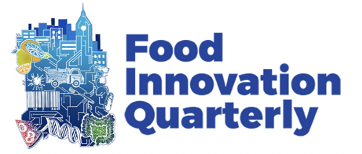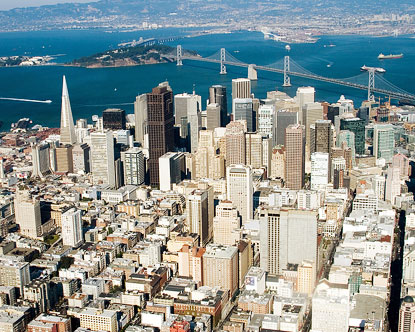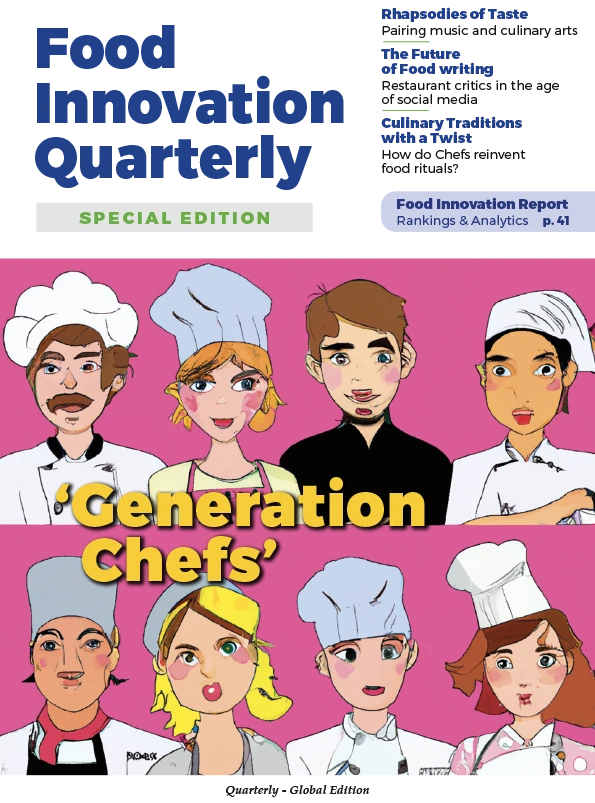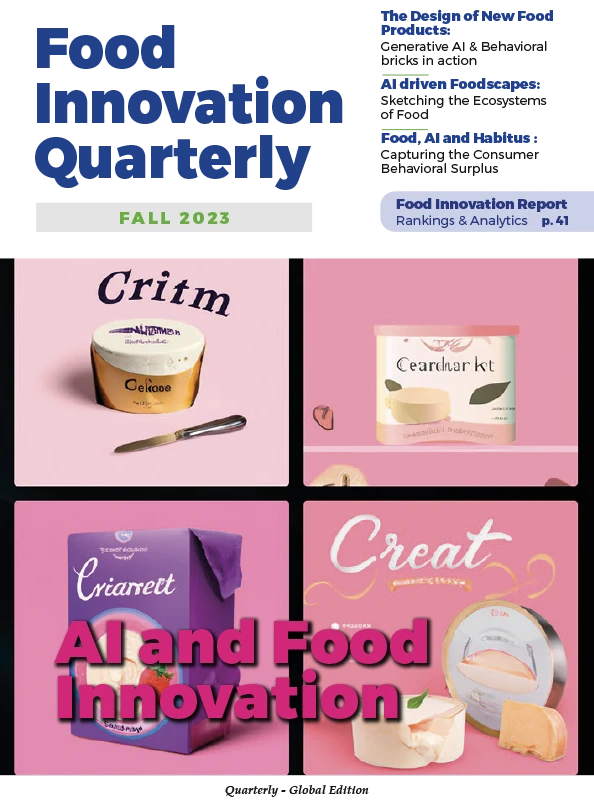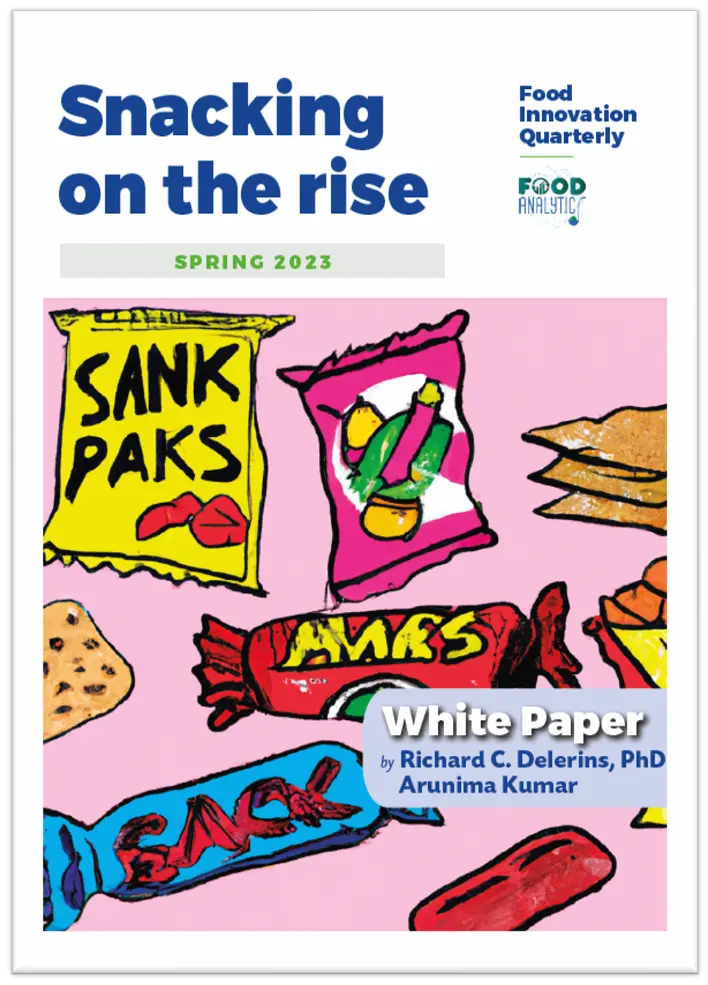Veganism, vegetable proteins with a digital twist, cultural authenticity and a mix of culinary genres, the Millennial’s day in San Francisco oscillates between expansion outside of oneself and back to one’s inner self of values and choices.
At seven o’clock in the morning in the Hispanic neighbourhood of San Francisco Mission District, the sky is, as usual for a summer morning, very overcast. In spite of the strong urge to lounge around in pyjamas on the roommate’s sticky sofa, it’s time for the Millennial to get to work. In order to efficiently get out of the morning nebula, a visit to the coffee shop is a must.
For several years now, the city has been going crazy for the art of roasting and coffee roasters- cafés where artisanal roasting processes are honoured. Fair trade sourcing networks, the use of premium quality beans, state-of-the-art machines, transparency throughout the production chain, nothing is left out to seduce the demanding customers.
Breakfast: Riding the third wave
Almond milk lattes, which smell like Valencia Street, are gradually surpassing the famous (very) long coffee served in the diners of American movies- in popularity, despite their cost. Expect to spend $4.50 on average to enjoy a latte in the minimalist settings of Ritual Coffee Roasters, Verve or Sightglass Coffee. In perpetual search for something new, some people are now tempted by the “Rosé” of the Philz Coffee chain. No wine on the menu, but rather an iced caffeinated drink with an incarnate color and rose flavors. Beyond the attention paid to the product’s aesthetics, the positioning of Philz Coffee is clear: “to offer a cup of coffee specially prepared according to the tastes of each customer”. It is therefore not surprising that Philz Coffee’s branches, located in the trendy Dogpatch district also have a coffee lab open to the public, where the latest creations of its teams are tested with a young and well-to-do clientele.
A little further down 3rd Street, a new generation bakery, Neighbor Bakehouse, opened in 2015. While the coffee here is classic (served, however, in handmade ceramic cups), the place is more popular for its fine pastries by the head baker and owner, Greg Mindel. While in the background, the sourdough breads are tenderly rising in the oven, you can’t help but salivate over the croissants in pistachio, blackberries, almonds or raspberries flavours. The brand’s principles have the strength of simplicity: culinary creations that seek to sublimate local products, all organically grown in California. The smell of warm pastries makes you forget the size of the operation, or maybe it’s just the exceptional design of the mobile sales point set up on the counter. One swipes one’s card without forgetting to add a tip and having time to realize how much is spent. “How much did I pay again? Doesn’t matter, it’s time to get to work.
Lunch: The Impossible Burger
Fortunately, the working hours in start-ups – where most San Francisco residents between the ages of 20 and 40 work- are flexible. After checking a few emails, the Millennial takes the time to enjoy a can of the fruity LaCroix (pronounced “La Croy”), the flavoured bubbly water provided by the employer. The brand that bills itself as the healthy version of soda is not only invading the fridges of all Silicon Valley start-ups but also those of American families. Associated with the idea of health and naturalness, sparkling water in the United States today, has double-digit annual growth unlike soft drinks, which are stagnating at 1% per year.
It’s about noon when the front door bell rings. The Uber driver is downstairs with bags full of steaming food. Today is Friday, and the young CEO has given the go-ahead to order lunch – meals at the start-up’s expense, of course – from an on-demand delivery platform, Caviar, Doordash or Uber Eats.
This lunchtime order comes from Gracias Madre, a “plant-based protein” Mexican specialty restaurant. In the restaurant’s dishes, finely chopped tempeh and chunks of jackfruit make a nice substitute for the carne asada or marinated chicken usually found in tacos. The restaurant also offers a wide selection of “bowls” that include mashed avocado, cashew milk cheese, coconut rice, beans and sweet potato. While some of the company’s engineers are tackling a vegan burrito, Gracias Madre’s best-seller, others, craving meat, have preferred to order the Impossible Burger via their app, a culinary UFO whose reputation now extends far beyond San Francisco and California.
Now served in more than 60 restaurants in the Golden City, this veggie steak burger is very similar to a traditional beef burger. Made with soy protein, coconut oil and sunflower oil, the latest version of the Impossible Burger boasts an even “juicier” texture and a “tastier” taste. By reconstituting meat on a molecular scale, Impossible Foods intends to offer a near-perfect substitute for traditional ground steaks and other pork sausages. The movement does not seem to be stopping: the recent surge in the meat, seafood, egg, milk & even cheese analogue brands globally, attests to a widespread craze for plant-based proteins.
Afternoon: Mindful Tea
Throughout the afternoon, employees of the start-ups take turns picking from the endless supply of snacks. The company provides all kinds of snacks: almonds, pistachios, vegan energy bars and organic fruits are abundant in the kitchen drawers. The premises are also full of herbal teas from Stash, Numi or Yogi Tea. In the case of the latter, each bag comes with a message full of wisdom, reminiscent of the tradition of Chinese fortune cookies. “You are as beautiful as the universe” and “speaking from the heart is your greatest strength” on the small pieces of paper hanging from each tea bag. This guarantees hours of productive work in “full consciousness” …
Dinner: Burma, kombucha and jars of jam
Around 5pm, the offices start clearing out. It’s time to leave. A few pedal strokes further on Yamo, a restaurant with Burmese specialties, grabs the eye despite probably being one of the smallest establishments in San Francisco. This “hole in the wall” is run with an iron fist by three chefs with impressive dexterity. Only 12 guests can be served at the counter, less than a meter away from the ovens. The line is often long on the sidewalk of 18th Street and it is impossible to make a reservation or to leave your name in hopes to secure a seat. So, we decide to come back a little later. At Yamo, customers are invited to bring whatever they wish to drink with their dish with them, be it beer or kombucha. It is also possible to bring your own vegetables to cook them there.
Rather than waiting in line, we go and have a look at Rainbow Grocery, a cooperative located a few streets away, a real Alibaba’s cave with local products, fresh and dry, mostly presented in bulk. You go there with your own empty jam jars and fill them with turmeric kimchi, prepared on the spot, or organic Californian rice and red lentils.
Back in Yamo, the cook grabs the oyster mushrooms and the bunch of green onions she is handed. Luckily, the specialty of the day is papaya salad, the perfect dish before tasting the spring rolls, and then the noodle soup. In this timeless place, technology doesn’t really exist- except if you want to take out your phone to take pictures of your food. Closer to the narrow and battered corridor than the vast, sleekly designed room, Yamo is not place where you go with friends. It is a spot where you come to find the comfort of an authentic cuisine, to lose oneself in the steam from the large curved stoves, to admire the Bok choy that flames in the air and smell the spices with your nose and palate. Sitting alone at the counter, you come to share a special experience with other anonymous customers. A kind of sensory and collective meditation.
Once out of Yamo, and to satisfy a sweet tooth, we go in search of some light sweets. At Na Ya Dessert, ingredients from Japanese and Thai cuisine are used to revisit age-old recipes. You can try out a matcha crème brûlée or even pancakes with mango glutinous rice. Na Ya is not alone. Other brands such as U: Dessert Story or Gram Cafe and Pancakes have also made the choice to offer their customers futuristic pastries, at the crossroads of eclectic culinary influences.
San Franciso, a city where Millenials memorialize their inner selves through the choice of food; using food as a form of expression to expand upon their inner self journey.
